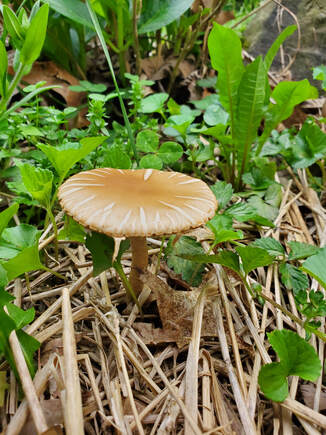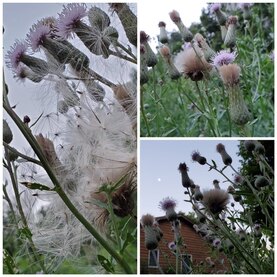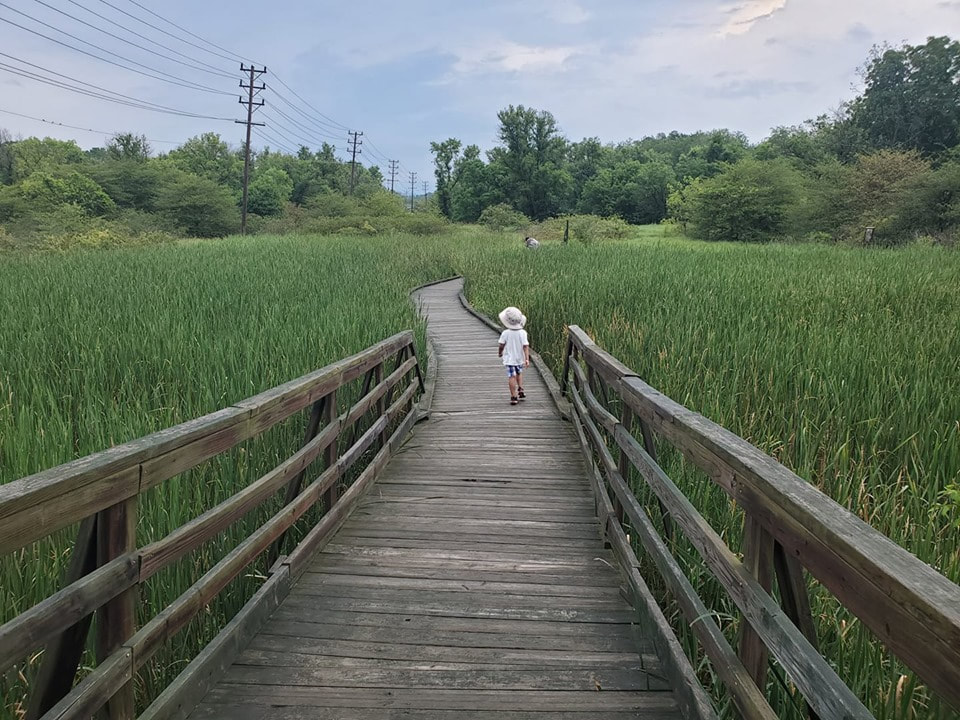
Living a rooted life doesn't mean not moving ever. It may mean moving when necessary. The refugee problem is proof enough that staying put (such as in drought-stricken Central America, or drought-stricken Syria) isn't an option for much of the world. When I was young, my parents lived in Maryland. I don't remember all of the houses or neighborhoods I lived in. Before 4th grade, when my family moved to Patton, PA, I had attended three elementary schools in different towns: Lettie Marshall Dent, Marshall Hall, and Mother Catherine Spalding. Living a more rooted life might have meant forming the types of friendships that began in elementary school and continue to adulthood. At lest for our family Maryland was a place of transience, not a place for forming roots. I remember living in Brian's Road, where we lived near cousins (who eventually moved to Frederick) and later Golden Beach, where my aunt and uncle set up their mobile home in our backyard. My parents moved to try to make a living. They tried to help us form roots against the wave of 20th Century work. But it wasn't until my grandfather died and we moved to Pennsylvania, we rooted ourselves in place.
Higher education can be an uprooting profession for many. To exemplify, I applied for many jobs from 2014 until last year. I interviewed in person (as a finalist) at universities in Canada, Ohio, Massachusetts, Maine, Virginia, New York, and Arkansas. The only full-time higher education job I was offered was in Maine. While that would have been a great professional opportunity for me, I was reticent because of my experiences with moving. For instance, we were in Maryland when my grandfather died. I don't remember much about him (he used to sing 'Danny Boy' to me from his death bed where he resided for years). I do, however, have many wonderful memories of my grandmother, formed after we moved home. She loved to ride amusement park rides at Bland's Park. I rode with her on the Tilt-a-Whirl and Ferris Wheel often. She cooked badly, and I avoided her food by telling her I was a vegetarian. She loved the social connections the internet afforded her as she aged. She canned fruits. She was kind. I can remember her smile and her old but joyful eyes.
I want my child to have those types of memories with my and my wife's parents. Living in Central, PA affords a proximity that pursuing my professional goals in higher education wouldn't. I want my son, my primary pedagogical responsibility, to have roots. Because my wife has a fantastic job she loves, we are buying a house in State College, only a couple of blocks away from where we currently rent. My son will be close enough to walk to visit his friends here. To walk to elementary school. It's a Catholic school; we're up-keeping that tradition (I graduated 8th grade from St. Bernard's in Hastings; my mom went to St. Mary's in Patton, my dad attended St. Patrick's in Spangler; and my grandma even attended St. Bernard's, though consistent with her generation she only had a couple of years of schooling). There are many ways to cultivate roots. Remembering old songs, foods, and other traditions. Some of these traditions may seem pointless in the 21st Century, where cosmopolitan, globalist, and capitalist ideologies guide our moral judgment. Everybody goes to Disney and sings 'Dancing with a Stranger.' But, I think there's something to continuing traditions. And when we move, we should make moral choices. My choices aren't the same as everybody else. John Dewey described moral education as being embedded in every other subject. Every subject, for Dewey, is a practice of living life socially, moral action is action as lived practically. Every day. In every various action we take. How we eat, how we travel, where we live, how we teach and learn, and how we musick. All of these are moral actions when we make them so.
It isn't just about moving from house to house. It's about all movement. I choose to move through this world in a moral way. That is, I choose to make the best moral choices I can, every day, in practice. I want to be like hyphae, the "cornerstone of ecosystems" that facilitate trees' conversations. Hyphae move through the soil making connections. Hyphae embody symbiosis, and mutuality. What better metaphor can there be for the life of an educator? Educators as hyphae.
DJS



 RSS Feed
RSS Feed
